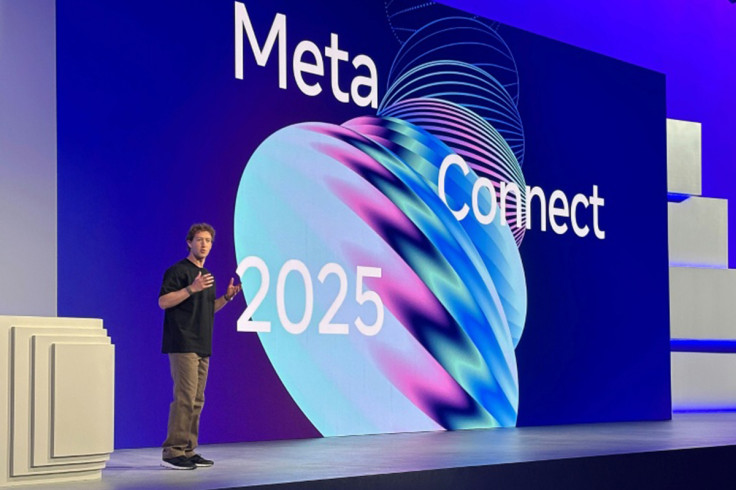Meta Layoffs AI Shock: Zuckerberg Axes 600 Engineers — but Says AI Is Still the Future
Some employees called the layoffs inconsistent with Meta's AI vision

Meta has laid off around 600 engineers from its Artificial Intelligence (AI) division in a surprising move that has sent shockwaves through the tech industry. The job cuts, announced on 22 October 2025, affect several key teams within Meta's AI operations, including the Fundamental Artificial Intelligence Research (FAIR) group, product AI and AI infrastructure.
The decision was communicated internally by Chief AI Officer Alexandr Wang, who said the restructuring was part of efforts to streamline the company's fast-growing AI operations.
Despite the layoffs, CEO Mark Zuckerberg insisted that AI remains 'core to Meta's future' as the company continues to invest heavily in advanced machine learning and superintelligence projects.
Meta's Internal Shake-Up and Which Teams Are Affected
The 600 redundancies form part of Meta's ongoing reorganisation of its AI division, which the company says will improve focus and efficiency. The affected teams include some within FAIR, a renowned research group responsible for Meta's early breakthroughs in AI models, as well as staff working on product-level AI integration and core infrastructure systems.
In an internal memo, Wang told staff that the company aimed to 'streamline decision-making and increase the impact of individual roles.' According to Axios, the 600 redundancies form part of Meta's wider reorganisation of its AI division.
He added that affected employees were encouraged to apply for other roles within the company, suggesting that Meta expects to reassign some of the impacted engineers rather than fully terminate all positions.
Notably, the layoffs did not affect the recently established TBD Lab, a specialised division focused on long-term AI innovation and superintelligence research.
Inside Meta's Broader AI Restructuring
Meta's latest job cuts come just months after a major internal overhaul of its AI operations. In August 2025, Zuckerberg split Meta's Superintelligence Labs into four sub-units dedicated to research, product integration, infrastructure and innovation.
The restructuring was designed to enhance collaboration between technical teams and speed up the development of AI products across Meta's platforms, including Facebook, Instagram and Threads.
However, internal reports suggest tensions had been mounting within the AI organisation, with some employees describing overlapping roles and unclear responsibilities.
Meta had already paused hiring for certain AI roles earlier this year as part of its wider 'year of efficiency', which previously saw around 4,000 global job cuts in February.
Why Meta Is Cutting AI Jobs Despite Its AI Push
Industry analysts say Meta's decision to scale back some AI roles reflects a broader recalibration rather than a retreat from AI investment.
The company has spent billions of dollars on high-performance chips, data centres and recruitment of top AI talent over the past year. But executives are reportedly seeking to refocus resources on areas directly tied to product performance and next-generation AI models.
Meta's leadership has also faced pressure to control rising costs after heavy infrastructure spending. Some insiders told media outlets that the AI division had become 'bloated' following a wave of aggressive hiring throughout 2024 and early 2025.
The company's latest move aligns with a trend seen across Silicon Valley, where major firms are trimming non-core roles while doubling down on high-value AI development.
Reaction from Employees and Industry Watchers
The layoffs have drawn strong reactions from Meta employees and the wider tech community. Some staff voiced frustration on social media over inconsistent management and shifting priorities, while others questioned the timing, given Meta's continued hiring of AI researchers from rivals like Google and Anthropic.
Analysts see the move as a reflection of the AI sector's fierce competition and volatility. Meta insists its AI ambitions remain unchanged, saying it will continue expanding its work on generative AI and superintelligence research.
Zuckerberg reaffirmed that AI remains the company's central focus, stating that Meta's long-term goal is to 'build the most advanced AI systems in the world.'
What It Means for the Future of AI Work
Meta's layoffs reflect a shifting reality in the AI job market. While demand for skilled engineers remains high, companies are increasingly selective about which roles align with strategic priorities.
Similar moves have been seen at Google, Microsoft and Amazon, all of which have simultaneously reduced headcounts and boosted AI spending.
For Meta, the restructuring is seen as a step toward consolidating its AI units ahead of future model rollouts and continued competition with OpenAI. The company insists that, even amid cuts, its commitment to building superintelligent systems remains 'stronger than ever.'
© Copyright IBTimes 2025. All rights reserved.





















